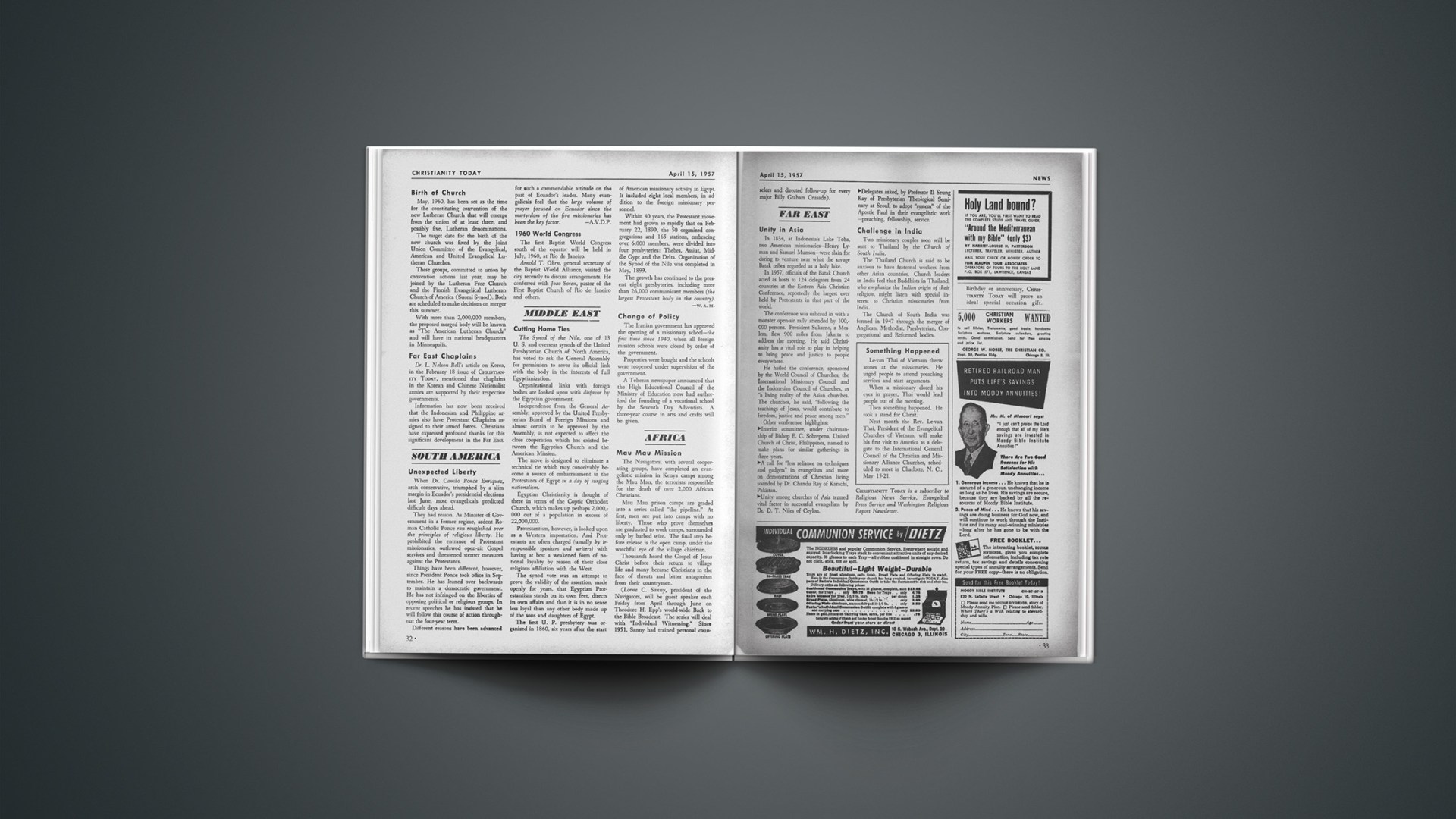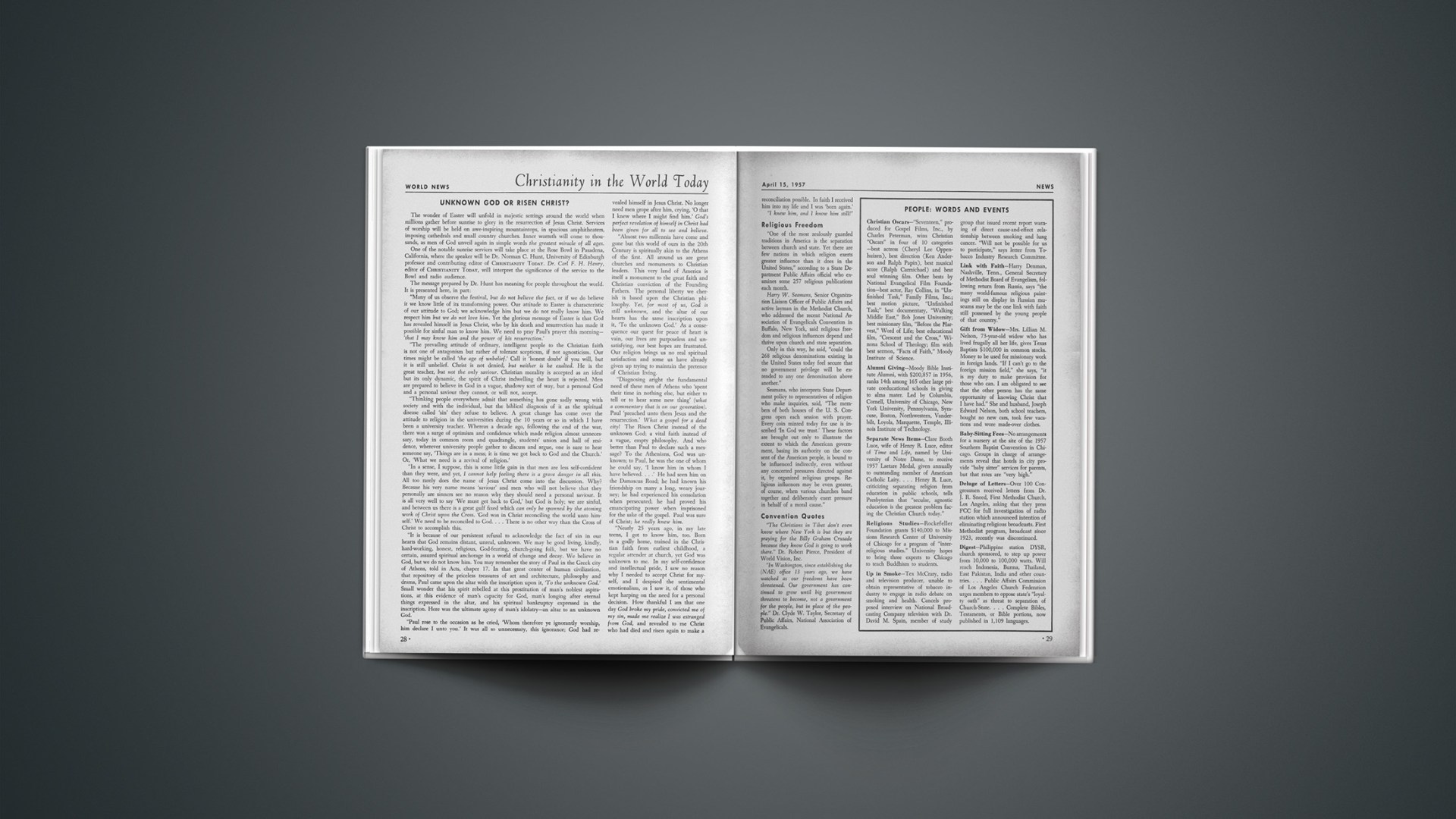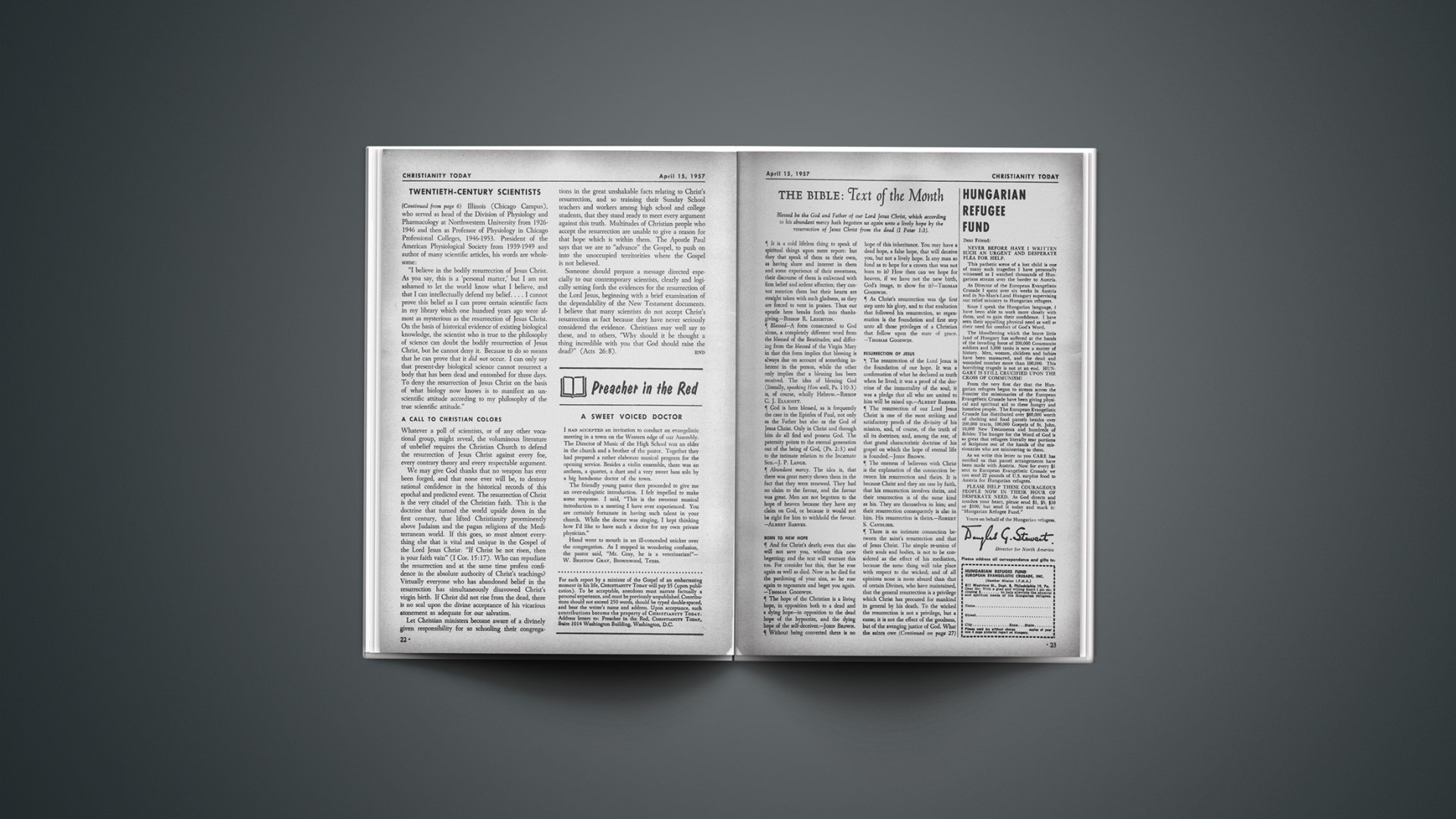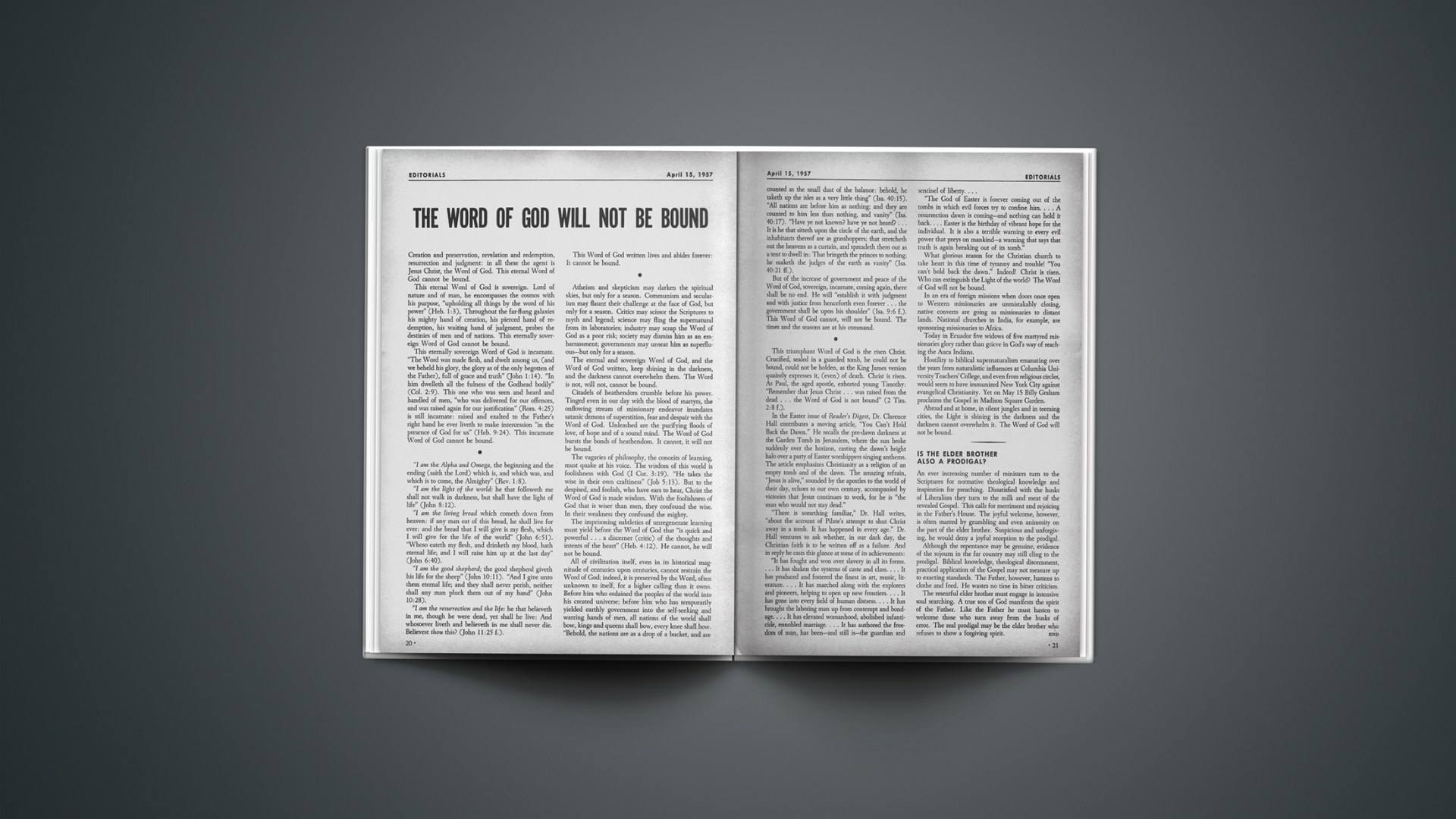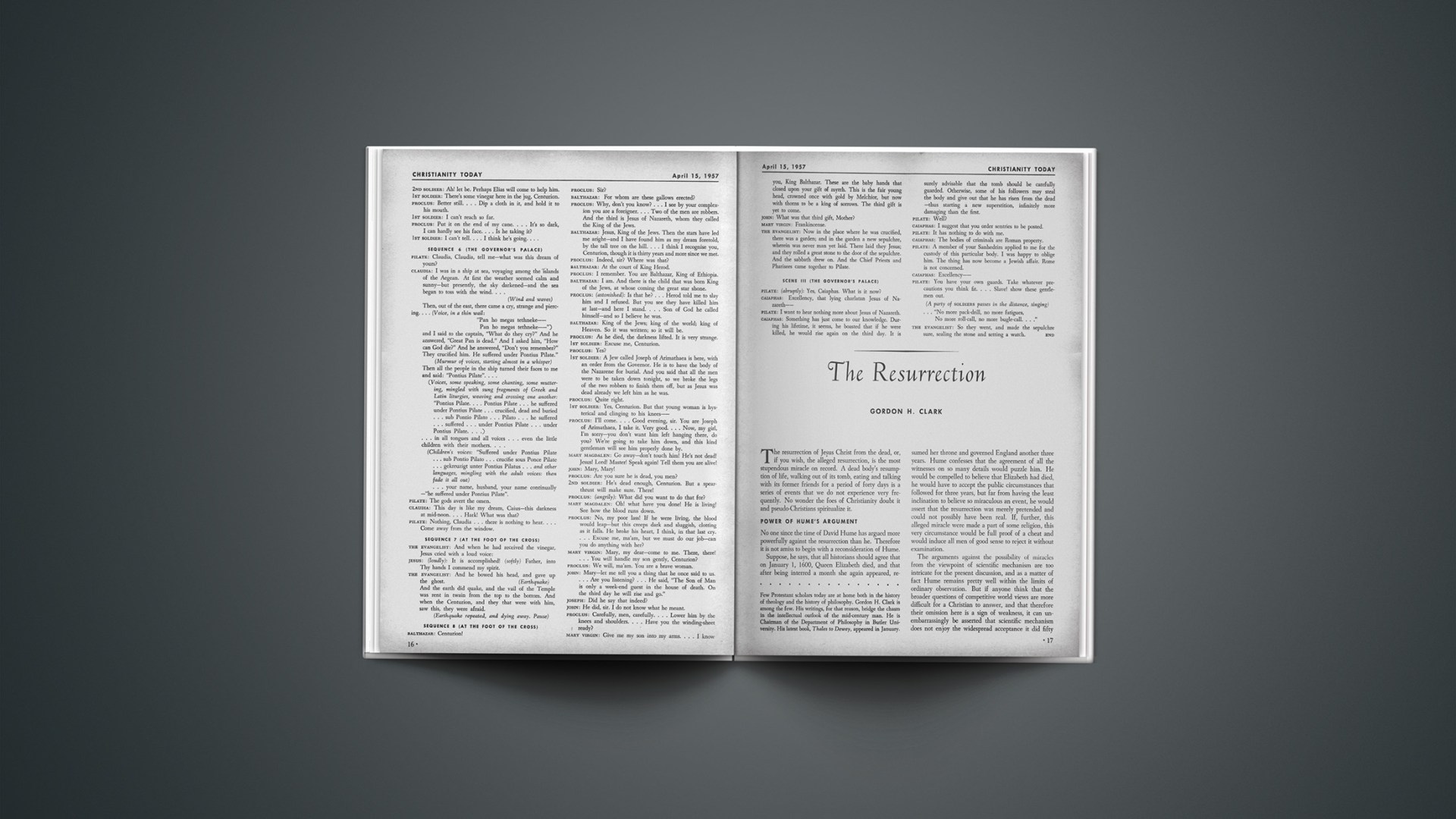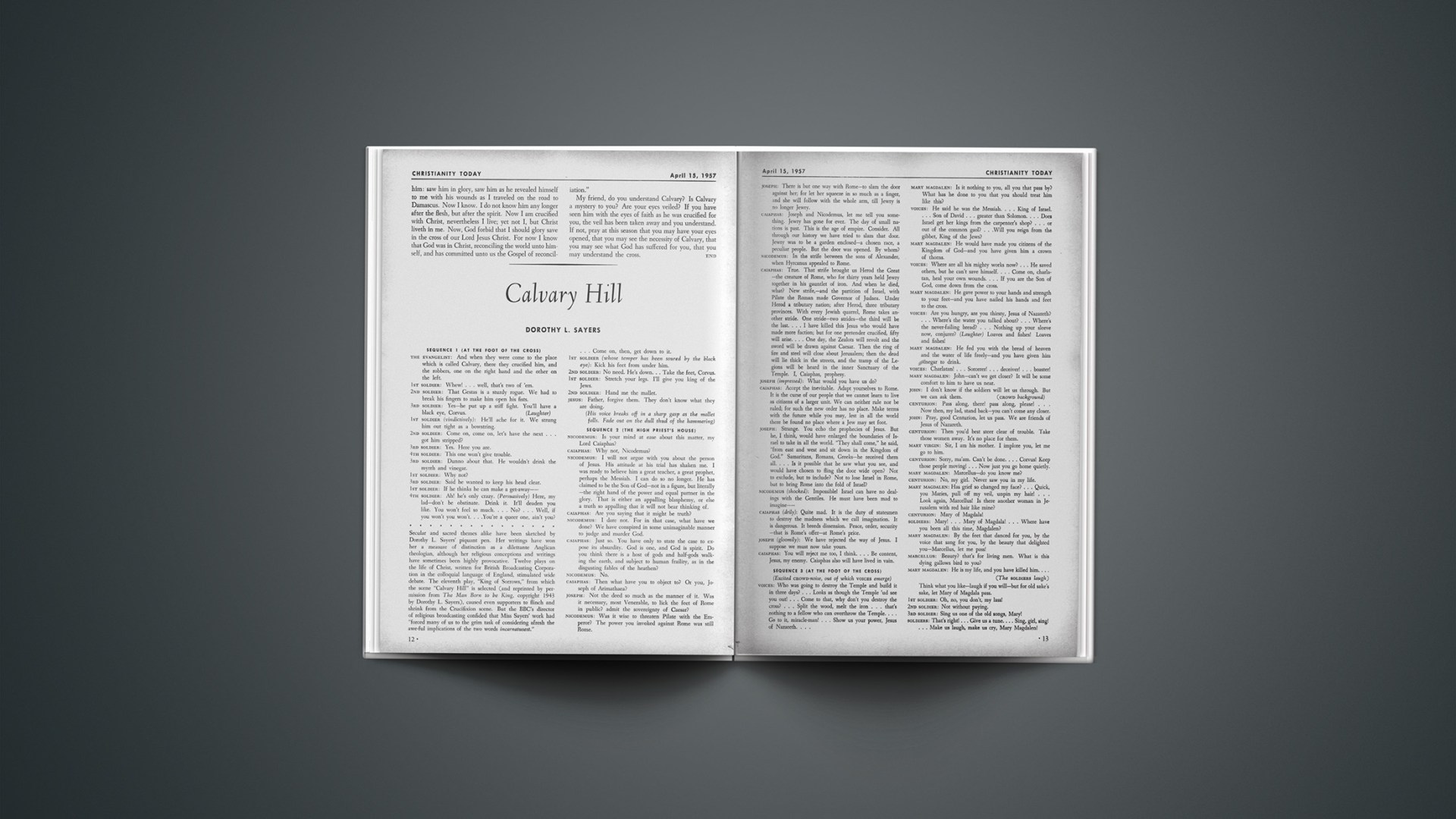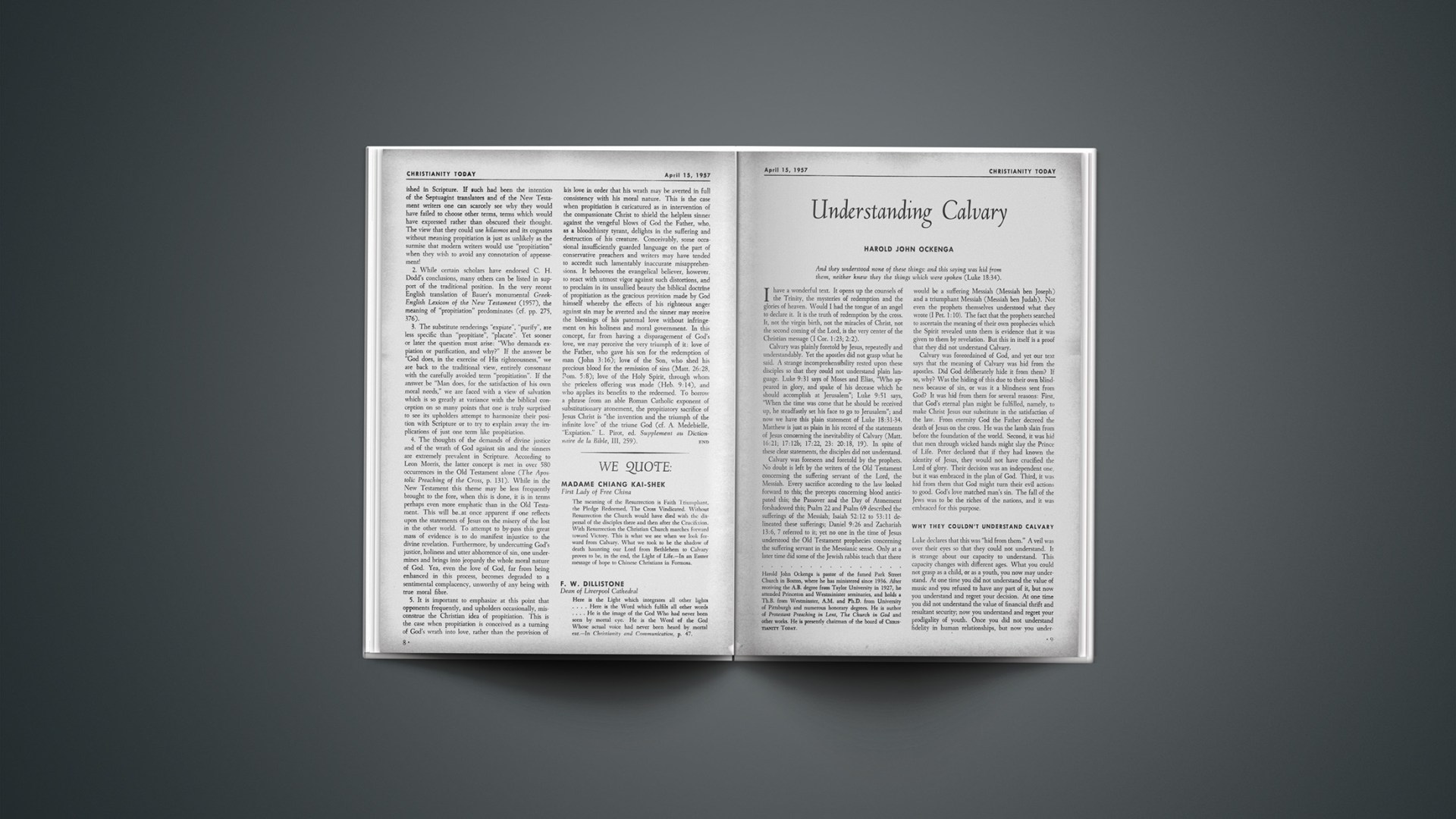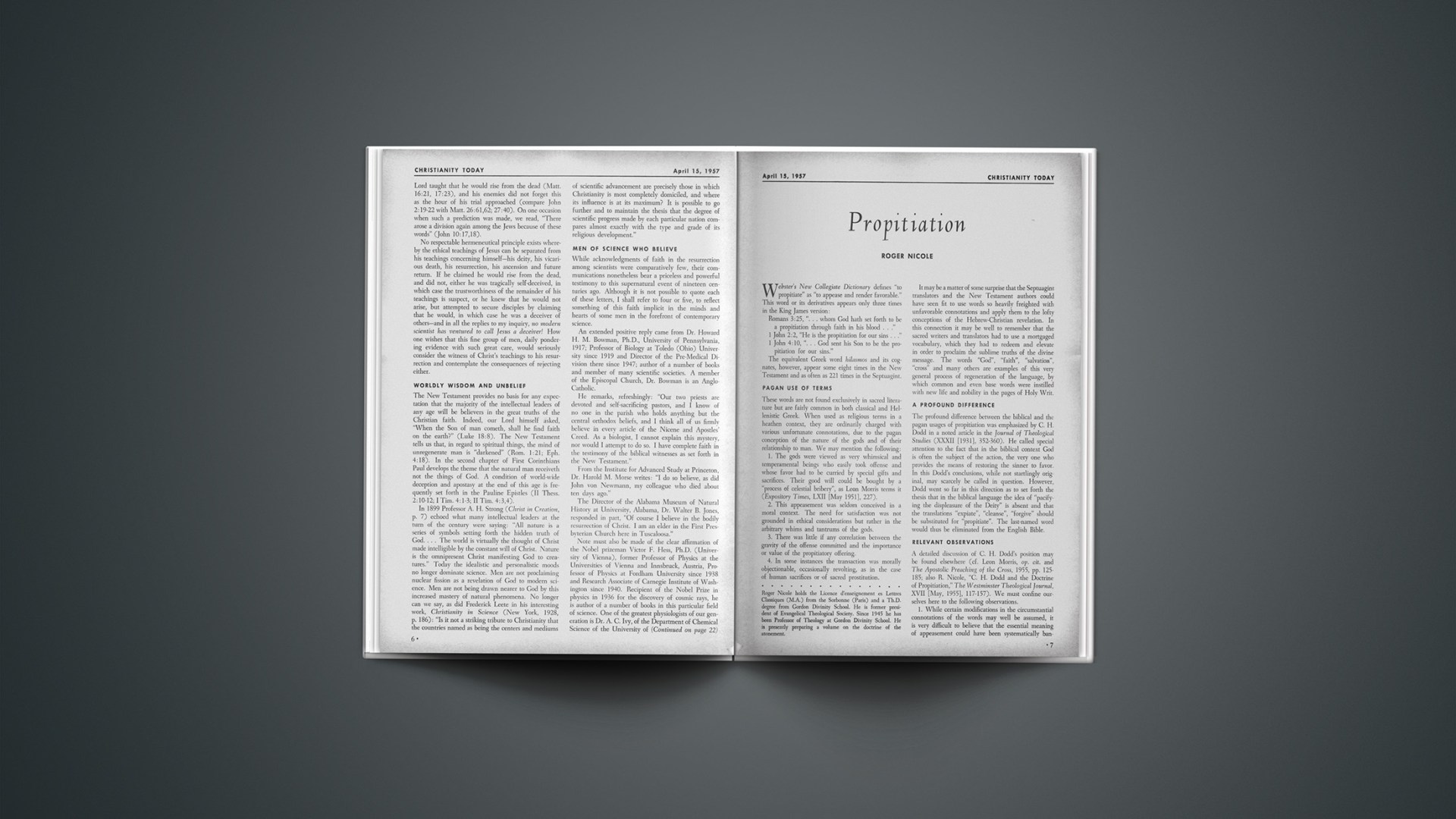Cutting Home Ties
The Synod of the Nile, one of 13 U. S. and overseas synods of the United Presbyterian Church of North America, has voted to ask the General Assembly for permission to sever its official link with the body in the interests of full Egyptianization.
Organizational links with foreign bodies are looked upon with disfavor by the Egyptian government.
Independence from the General Assembly, approved by the United Presbyterian Board of Foreign Missions and almost certain to be approved by the Assembly, is not expected to affect the close cooperation which has existed between the Egyptian Church and the American Mission.
The move is designed to eliminate a technical tie which may conceivably become a source of embarrassment to the Protestants of Egypt in a day of surging nationalism.
Egyptian Christianity is thought of there in terms of the Coptic Orthodox Church, which makes up perhaps 2,000,000 out of a population in excess of 22,000,000.
Protestantism, however, is looked upon as a Western importation. And Protestants are often charged (usually by irresponsible speakers and writers) with having at best a weakened form of national loyality by reason of their close religious affiliation with the West.
The synod vote was an attempt to prove the validity of the assertion, made openly for years, that Egyptian Protestantism stands on its own feet, directs its own affairs and that it is in no sense less loyal than any other body made up of the sons and daughters of Egypt.
The first U. P. presbytery was organized in 1860, six years after the start of American missionary activity in Egypt. It included eight local members, in addition to the foreign missionary personnel.
Within 40 years, the Protestant movement had grown so rapidly that on February 22, 1899, the 50 organized congregations and 165 stations, embracing over 6,000 members, were divided into four presbyteries: Thebes, Assiut, Middle Gypt and the Delta. Organization of the Synod of the Nile was completed in May, 1899.
The growth has continued to the present eight presbyteries, including more than 26,000 communicant members (the largest Protestant body in the country).
—W. A. M.
Change Of Policy
The Iranian government has approved the opening of a missionary school—the first time since 1940, when all foreign mission schools were closed by order of the government.
Properties were bought and the schools were reopened under supervision of the government.
A Teheran newspaper announced that the High Educational Council of the Ministry of Education now had authorized the founding of a vocational school by the Seventh Day Adventists. A three-year course in arts and crafts will be given.



